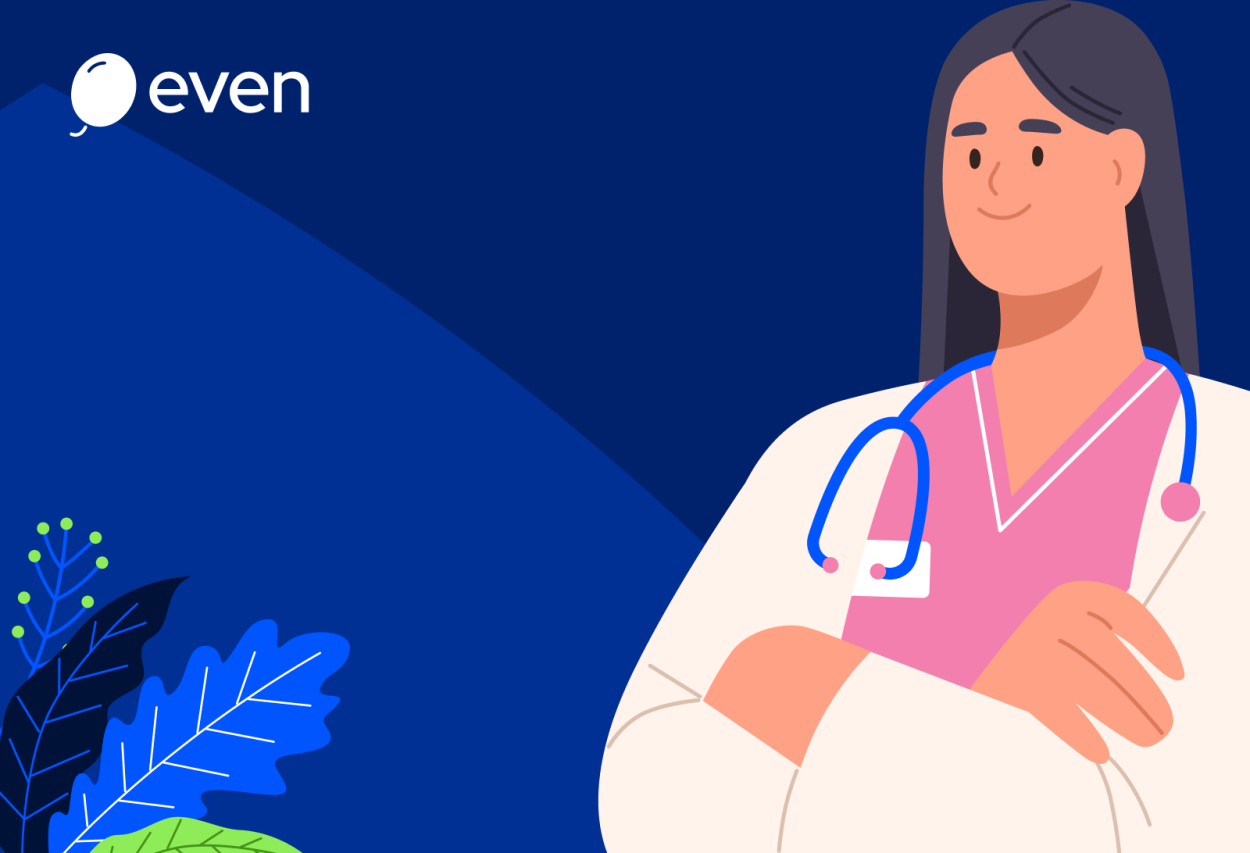National Doctors Day, celebrated annually on July 1, serves as a poignant reminder of the indispensable role that doctors and healthcare professionals play in our lives. This year’s theme, ‘Healing Hands, Caring Hearts,’ resonates deeply as we honour their dedication, compassion, and expertise in safeguarding our health.
In today’s digital age, the internet has transformed how we access information, including health-related information. While it offers unprecedented convenience and empowerment, it also presents risks when used without caution. IDIOT syndrome, or Internet Derived Information Obstruction Treatment Syndrome, exemplifies the pitfalls of relying solely on online resources for medical guidance.
What IDIOT Syndrome Means
IDIOT syndrome stands for Internet Derived Information Obstruction Treatment. It describes the loop where repeated symptom-searching leads people to self-diagnose, change or stop treatment, or postpone seeing a clinician. Anxiety rises. Care gets harder. Outcomes can suffer.
You’ll sometimes see the full phrase written out as in, idiot syndrome internet-derived information obstruction treatment. It’s a mouthful, but the idea is simple: when web results start obstructing real-world care, you’ve crossed the line from helpful research to harmful habits.
Why the Internet Feels Certain Even When it Isn’t
Online results aren’t tailored to your body or history. They’re ranked by engagement, recency, and popularity. That creates a few traps:
- Broad symptoms & dramatic conclusions: Headache + fatigue = a dozen possibilities, but attention-grabbing pages push the scariest ones.
- Algorithm bias: Bold claims and miracle fixes earn clicks; measured advice often sits lower.
- No context: A page can’t examine you, review your medicines, or run tests. Your doctor can.
- Confidence illusion: Long articles and medical-sounding words can feel authoritative even when the advice is generic.
How to Spot the IDIOT Pattern in Yourself
- You Google symptoms repeatedly and feel worse after each session.
- You jump to worst-case scenarios and struggle to let them go.
- You adjust doses or stop medicines after reading a post or watching a video.
- You mistrust in-person advice because an article says something different.
- You delay appointments while you “research a bit more.”
If two or more feel familiar, it’s time to reset how you search.
Why It’s Risky for Fealth and Headspace
- Misdiagnosis: Many conditions share similar symptoms; without a thorough examination or diagnostic tests, accuracy is low.
- Delayed treatment: Some problems are time-sensitive; waiting makes them harder to treat.
- Unsafe self-medication: Natural products and OTC mixes can interact with prescriptions.
- Anxiety spiral: Searching leads to scary results, which leads to more searching and more fear.
- Strained relationships: Arriving with fixed internet conclusions can block collaborative planning.
When to Stop Scrolling and Contact a Doctor
- New, severe, or worsening symptoms.
- Red flags: high fever, chest pain, sudden weakness or numbness, confusion or fainting, severe breathlessness, uncontrolled bleeding.
- Medication questions (side-effects, interactions, dose changes).
- No improvement after sensible home care.
- Your worry starts to disrupt sleep, work, or daily life.
Use the Web Like a Tool & Not a Prescription
Being online isn’t the problem. How we search is. Here’s a calm, repeatable method that keeps the internet in its lane:
1. The 5-Step “Calm-Search” Method
- Time-box it (10-15 minutes). Endless scrolling drives anxiety.
- Start with credible sources. National health bodies, major hospitals, and peer-reviewed references.
- Look for agreement. If three respected sources align, note the theme. If they conflict, don’t decide; ask your doctor.
- Take structured notes. Write a symptom timeline, what helps/worsens, current meds/supplements, and your top three questions.
- Stop when the timer ends. If you’re still worried, book care rather than hunting for one last article.
This approach transforms searching into preparation for a more effective conversation, rather than a replacement for it.
2. For Families and Caregivers
- Validate first, redirect next. “I get why you searched. Let’s take these notes to the doctor.”
- Share one reliable link instead of many random ones.
- Offer to schedule the appointment and accompany them for support, if that would be helpful.
- Don’t endorse dose changes without medical advice, especially for heart disease, diabetes, mental health, steroids, and antibiotics.
3. How Doctors and Patients Can Meet in the Middle
- Bring what you read. Sharing links speeds myth-busting and builds trust.
- Ask for decision aids. A handout or link you can revisit reduces repeat searching.
- Agree on “watch-and-wait” rules. “If X happens by Y date, call us.”
- If anxiety is high, discuss brief supports such as CBT or mindfulness and whether a short counselling referral could help.
Myths vs Realities
| Myth | Reality |
| “If my symptoms match a page, I have that disease.” | Symptom overlap is huge. Context and testing make the difference. |
| “Natural means safe.” | “Natural remedies can interact with medications and are not guaranteed to be effective.” |
| “If one site says it, it must be true.” | Verify the date, check the author’s credentials, review the references, and ensure that multiple trusted sources agree. |
Replace Worry With Action: A Short Plan
1. Today
- Book the right appointment (clinic, tele-consult, urgent care based on symptoms).
- Write a timeline: when symptoms started, how they change, what helps or triggers.
- List all medicines and supplements with doses.
2. At the visit
- Share your top three questions.
- Hand over your notes and links your clinician can scan fast.
- Ask, “What warning signs mean I should come back sooner?”
3. After the visit
- Follow the plan. Don’t swap doses because of a new post or video.
- Schedule the follow-up before you leave.
- If worry spikes, use time-boxed reading and reach out to the care team rather than deep-diving alone.
Conclusion around IDIOT syndrome
Use the internet as a tool for learning, not for self-treatment. Develop a few smart habits, rely on credible sources, conduct time-limited searches, and engage in honest conversations with your healthcare provider. This approach can help turn late-night worries into a practical plan. By doing so, you can avoid the pitfalls of misinformation, protect your peace of mind, and ensure that your care stays on track throughout the year.
Want a doctor to review your concerns instead of searching online endlessly? Book a consult with an Even doctor, request a second opinion, or find an Even specialist by speciality.
Visit the nearest clinic for an in-person review, explore services at Even Hospitals, or use the Even App to chat and manage appointments.
FAQs around IDIOT syndrome
Q: Is searching online always bad?
A: No. It’s helpful when it leads to care, not when it replaces care. Use it to learn the right terms and prepare questions.
Q: How much searching is too much?
A: If it raises your anxiety or delays care, it’s too much. Set a timer and stick to credible sites.
Q: What should I bring if I’ve read a lot online?
A: A symptom timeline, your med/supplement list, and three clear questions. Add links you want your clinician to review.
Q: Can IDIOT syndrome be treated?
A: Yes. Education, structured information use, and brief psychological supports (like CBT or mindfulness) help break the loop. If health anxiety is overwhelming, ask for a mental-health referral.
Q: Which sites should I start with?
A: Begin with well-known hospital sites or public-health bodies. Avoid miracle cures, undated pages, and advice that tells you to stop prescribed treatment without seeing a clinician.


